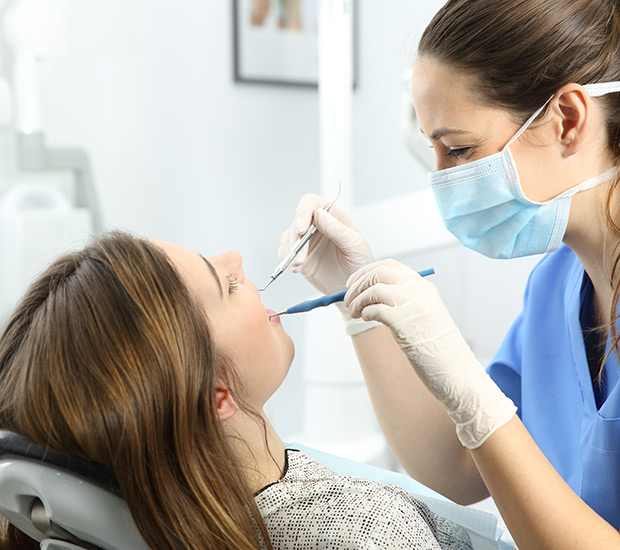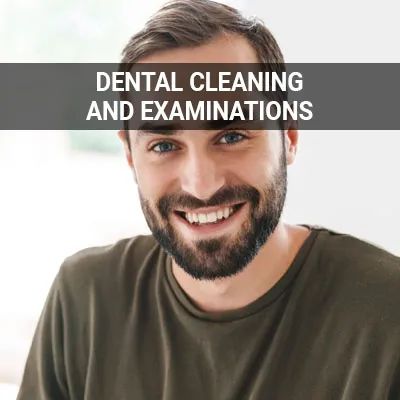What Does a Dental Hygienist Do Rosenberg, TX
Dental hygienists are dental providers who professionally clean teeth and counsel patients about oral hygiene. We can help patients maintain a healthy smile and treat various health issues. During a routine visit, a patient may see a dentist, a dental assistant, and a dental hygienist.
Dental hygienist treatment services are available at KRB Dentistry in Rosenberg and the surrounding area. Our team of dedicated providers works together to give patients a better bill of dental health. With a comprehensive approach to dental health, patients benefit from our thorough treatment plans, which start with routine cleanings and examinations by the dental hygienist.
Ideal dental health means there should be a partnership between the patient and the care team. Our team of dental staff is committed to patient education and proper oral care. Call us at (832) 361-3929 to schedule your next cleaning with a dental hygienist.
Dental Hygienist Training and Certification Process Details
In order to become a dental hygienist, a candidate must first complete a college program in dental hygiene. Students in the program may earn an associate degree at a community college, a bachelor's degree at a four-year university, or a graduate degree. Admissions to programs in dental hygiene usually require a background of high school courses in science.
After completing the academic college-level courses, dental hygienist candidates must then complete a supervised clinical experience with patients. Once the program is finished, dental hygienists must earn their state license in the practice. According to the American Dental Association, some states also require candidates to earn a passing score on the National Board Dental Hygiene Exam.
“After completing the academic college-level courses, dental hygienist candidates must then complete a supervised clinical experience with patients.”
How Dental Hygienists Help With Patient Screening
During routine exams and cleanings, dental hygienists may also assist the dentist with patient screenings for some conditions. They may assess the patient's oral health and use the periodontal chart to evaluate the patient's potential for gum disease. They may also inquire about any other health issues or chronic conditions for the patient.
Some dental hygienists may also perform cancer screenings during the examination, such as oral cancer. These dental professionals also examine the head, jaw, and neck to spot potential problems. Dental hygienists also may take X-rays of the teeth and mouth to determine if there are cavities or other oral issues.
“Some dental hygienists may also perform cancer screenings during the examination, such as oral cancer.”
Patient Counseling
Patient counseling is often an important component of a dental hygienist's job. Patients who have avoided the dentist chair for a while might be nervous during their appointment and come in with missing teeth, cavities, or serious gum disease. Many patients do not know proper oral care and maintenance beyond brushing and flossing.
Dental hygienists can help make the patient feel more comfortable during their appointment and provide education on how to better care for their teeth between visits. Patient counseling can also include help after treatment, such as providing any post-procedure instructions or restrictions.
“Patient counseling is often an important component of a dental hygienist’s job.”
Check out what others are saying about our dental services on Yelp: What Does a Dental Hygienist Do in Rosenberg, TX
Documentation Work
One part of a dental hygienist's job that is equally important to screening, counseling, and cleaning is the documentation of patient care and treatment. They are instrumental in creating and maintaining a patient's dental record and will document everything that is discussed and performed during their visit. A dental record includes personal information, along with medical and dental histories.
Dental records help the office deliver quality patient care and follow-up. They are also considered legally binding medical documents. Today, most dental records are kept electronically and can be sent to future health practitioners or specialists.
“One part of a dental hygienist’s job that is equally important to screening, counseling, and cleaning is the documentation of patient care and treatment.”
Questions Answered on This Page
Q. What is a dental hygienist's training and certification process entail?
Q. How does a dental hygienist help with patient screening?
Q. What sort of counseling does a dental hygienist provide?
Q. Does a dental hygienist do patient documentation?
Q. What parts of the dental visit are dental hygienists involved with?
People Also Ask
Q. Why is routine dental care important?
Q. What should a home oral care routine include?
Q. How can I find out if my employer's plan covers dental treatments?
Q. How do lifestyle choices affect dental health?
Q. What is the importance of having a routine dental checkup?
Dental Hygienists and Your Visit
Dental hygienists are involved in just about every clinical aspect of patient visits. Dental hygienists perform many of the preventative dental procedures done in an office, such as teeth cleaning, screening for oral disease, and other preventative dental care. Once a patient is checked in, the hygienist is typically the person who will lead them to the exam room. After they are settled into the dentist's chair, the dental hygienist will ask questions about the patient's health history and see if there are any concerns regarding their teeth or jaw. If X-rays are needed, the dental hygienist will administer them before the cleaning begins.
After the documentation is handled, they will take various measurements to check the health of their gums, remove plaque and tartar, and do a thorough cleaning and polishing of the teeth, followed by flossing. When the dentist arrives, the dental hygienist will let them know if there are any areas of concern and then help with various aspects of the dental exam. Following the exam, the dental hygienist will answer any questions and update the patient's chart. They can also take impressions of the teeth if needed for crowns, implants, dentures, or mouth guards.
“Dental hygienists are involved in just about every clinical aspect of patient visits.”
Frequently Asked Questions About a Dental Hygienist
Q. What is the difference between a dental hygienist and a dentist?
A. Dental hygienists and dentists have very different roles within a dental practice. A dental hygienist will conduct oral screenings, update your patient information, take x-rays, do a thorough cleaning, and look for potential problems. The dentist will come in following the cleaning to do an exam and will also handle more complicated procedures.
Q. What sort of training do dental hygienists have?
A. Dental hygienists have graduated from an accredited dental hygiene program and have taken and passed state exams to receive their license. During their studies, dental hygienists take classes in head and neck anatomy, pathology, nutrition, and medical ethics. Most programs take about three years to complete.
Q. What do dental hygienists do?
A. Dental hygienists have several different roles in an office. They can assist the dentist during procedures, update the patient's chart, show patients how to care for their teeth, perform oral health screenings, and remove plaque from the teeth. They can also apply fluoride and sealants to teeth as well as take impressions.
Q. What is the difference between a dental assistant and a dental hygienist?
A. It can be easy to confuse dental assistants and dental hygienists as they perform many of the same duties. Dental assistants can take x-rays, prepare instruments and equipment, take impressions of the teeth, and assist the dentist during procedures. However, unlike dental hygienists, they do not collect patient health history, remove plaque from the teeth, apply sealants or fluoride, or do any patient documentation.
Q. Does a dental hygienist receive certification or licensure?
A. Dental hygienists must complete at least an Associate's degree in dental hygiene. They must then pass the National Board Dental Hygiene Examination (NBDHE) in order to achieve licensure. This exam is the only one required by all 50 states.
Dental Terminology
Call Us To Schedule Your Next Appointment With a Dental Hygienist
If you want to improve your dental health, call us at 832-361-3929 for an appointment with a dental hygienist. Get started on a treatment plan that focuses on strong teeth and preventative strategies. Our team in Rosenberg is ready to help you achieve optimal oral health.
Helpful Related Links
- American Dental Association (ADA). Glossary of Dental Clinical Terms. 2024
- American Academy of Cosmetic Dentistry® (AACD). Home Page. 2024
- WebMD. WebMD’s Oral Care Guide. 2024
About our business and website security
- KRB Dentistry was established in 2014.
- We accept the following payment methods: American Express, Cash, Discover, MasterCard, and Visa
- We serve patients from the following counties: Fort Bend County
- We serve patients from the following cities: Rosenberg, Richmond, Cumings, Pecan Grove, and Pleak
- National Provider Identifier Database (1124126479). View NPI Registry Information
- Healthgrades. View Background Information and Reviews
- Norton Safe Web. View Details
- Trend Micro Site Safety Center. View Details
Back to top of What Does a Dental Hygienist Do










